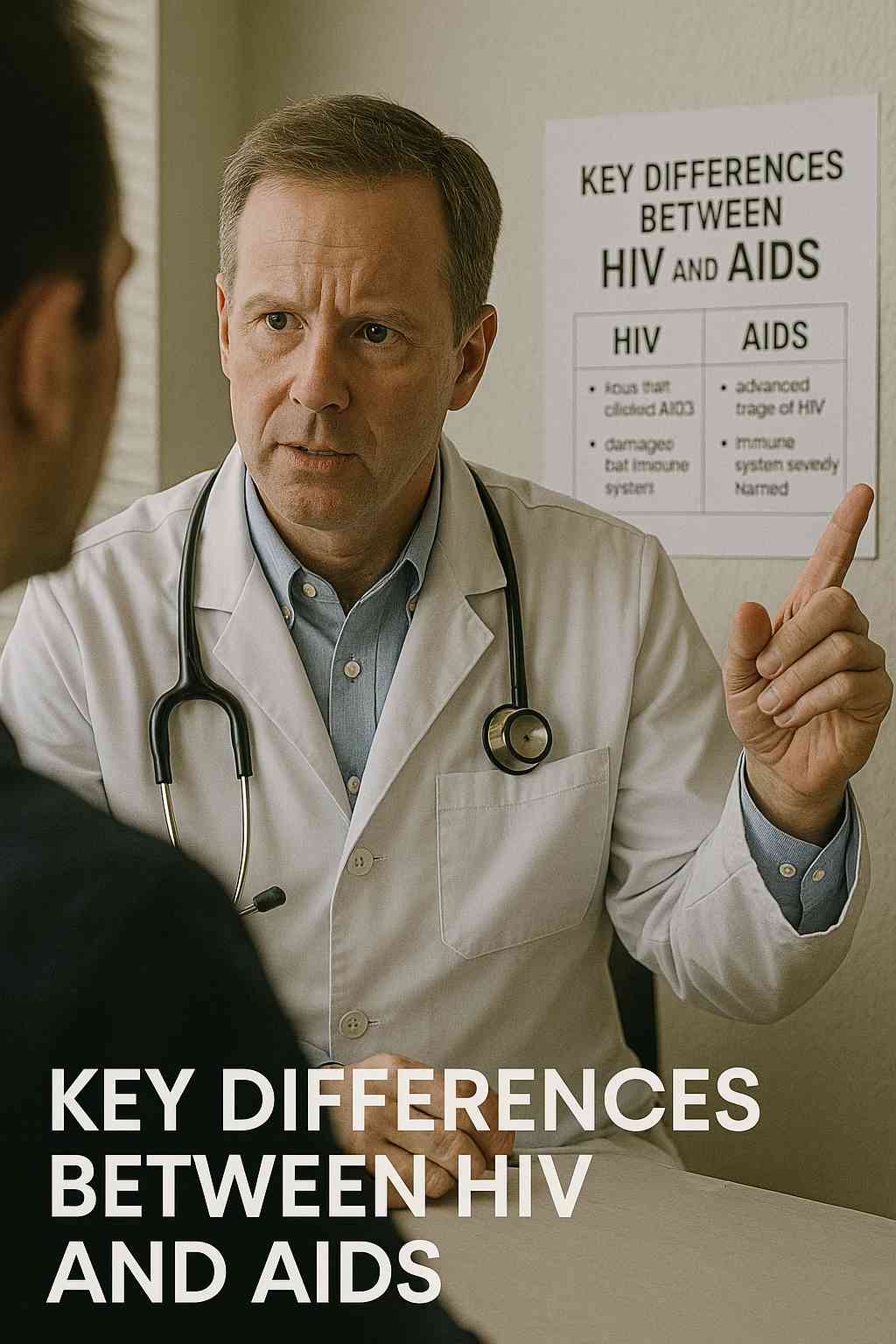Have you ever wondered what the actual difference between HIV and AIDS is? These terms are often used together, but they’re not the same. Understanding this distinction is vital for awareness, early detection, and proper treatment. Let’s break it down in simple, clear language.
Table of Contents
- What Is HIV?
- What Is AIDS?
- The Progression from HIV to AIDS
- Why This Distinction Matters
- Conclusion
- Frequently Asked Questions
What Is HIV?
HIV stands for Human Immunodeficiency Virus. It is a virus that attacks the body’s immune system, specifically the CD4 cells (T cells), which help fight infections. Over time, if HIV is not treated, it can destroy so many of these cells that the body becomes vulnerable to other infections and diseases.
HIV is transmitted through certain body fluids such as blood, semen, vaginal fluids, rectal fluids, and breast milk. Most commonly, it spreads through unprotected sex, sharing needles, or from mother to child during birth or breastfeeding.
With early diagnosis and effective antiretroviral therapy (ART), people with HIV can live long, healthy lives without ever developing AIDS.
What Is AIDS?
AIDS stands for Acquired Immunodeficiency Syndrome. It is the final and most severe stage of HIV infection. A person is diagnosed with AIDS when their immune system becomes severely damaged and they develop one or more opportunistic infections or cancers that rarely affect people with healthy immune systems.
Unlike HIV, which is a virus, AIDS is a condition. You can have HIV without AIDS, but you cannot have AIDS without first having HIV. Once AIDS develops, the immune system is seriously compromised, and medical intervention becomes even more critical.
The Progression from HIV to AIDS
Without treatment, HIV typically progresses to AIDS in 8 to 10 years. However, thanks to modern medicine, particularly ART, many individuals with HIV never reach the AIDS stage. ART helps reduce the viral load to undetectable levels, preserving immune function and preventing transmission.
Key signs that HIV may have progressed to AIDS include persistent fever, weight loss, chronic diarrhea, and frequent infections. Regular testing and monitoring of CD4 count and viral load help determine the stage of the infection.
If you’re concerned about symptoms or need to discuss your status, consult a healthcare professional at Healthcare.pro for accurate advice and care options.
Why This Distinction Matters
Knowing the difference between HIV and AIDS is not just medical trivia—it affects how people are diagnosed, treated, and supported. Misunderstanding the terms can lead to fear, stigma, and discrimination. Clear education helps normalize discussions, encourage early testing, and promote treatment adherence.
Furthermore, public health campaigns and digital outreach strategies depend on accurate language to resonate effectively. Understanding these terms also empowers individuals to seek the right support networks and medical care without delay.
Organizations such as eHealthcare Solutions play a vital role in raising awareness through digital media and community engagement.
Conclusion
To sum it up: HIV is a virus that can be managed with medication and care, while AIDS is the advanced stage of HIV if left untreated. Recognizing the difference helps reduce stigma and encourages early treatment, which can dramatically improve quality of life. Education, support, and access to medical care are the keys to changing outcomes.
Frequently Asked Questions
Can someone have HIV without knowing it?
Yes. HIV may not cause symptoms for years, which is why regular testing is important.
Is AIDS curable?
There is currently no cure for AIDS, but it can be managed with proper medical care.
How is HIV treated?
HIV is treated with antiretroviral therapy (ART), which keeps the virus under control and prevents progression.
Can people with HIV have healthy relationships?
Absolutely. With treatment and communication, people with HIV can lead full and healthy lives, including intimate relationships.
Is HIV still a death sentence?
No. With modern treatment, people with HIV can live as long as those without the virus if they stay in care and on treatment.
This content is not medical advice. For any health issues, always consult a healthcare professional. In an emergency, call 911 or your local emergency services.




